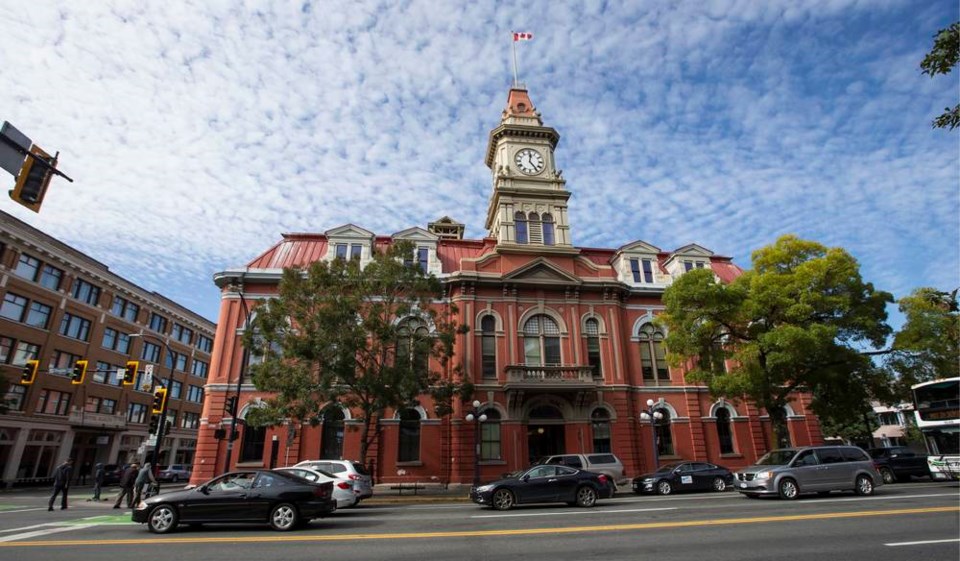An election campaign is a great time for B.C. mayors to submit their wish lists. A campaign in the middle of a pandemic that has rocked the underpinnings of society is even better.
The conventional limits on expectations have been removed. The assorted crises piling up are so acute that the pleas for help resonate more. And there’s more leeway for ideas outside the normal range.
So an informal group of mayors from B.C.’s biggest municipalities weighed in Wednesday on what they need out of the next government. It’s going to spend the next four years (at least) digging its way out of the hole created by COVID-19. Mayors pitched three ideas as to how, related to mental health/addiction, transit, and affordable housing (covered elsewhere in this newspaper). Each of them involve spending a lot more money.
The fourth one calls for a different way to put that money at their disposal. They want municipal taxation powers enhanced so they don’t have to rely on begging federal and provincial governments for money to the same extent they do now.
It’s been a standing request for years, but the hope is that desperate times will change the province’s standard response to the idea, which has been to ignore it.
They want municipal and provincial officials to meet and reform the tax regime to give mayors a more predictable, reliable and sustainable range of funding tools, in order to address increasing financial pressures.
Victoria Mayor Lisa Helps co-chairs the urban mayors caucus, which started meeting at the outset of the pandemic. She said just because cities are creatures of provincial governments under the constitution doesn’t mean they can’ t innovate within it.
Innovative ways of raising money are needed to address the increasing pressures of growth, aging infrastructure, climate change, housing and opioid addiction, she said.
“We sincerely hope that these calls for action will end up in all parties’ platforms.”
Helps said COVID-19 has revealed even more the need for a new fiscal relationship. Adopting a blueprint from the Union of B.C. Municipalities that was submitted eight years ago but shelved would make municipalities more resilient “so when crises hit we don’t need to look to senior levels of government for so much assistance.”
The mayors’ request was made the same day billions of dollars in provincial sales tax, carbon tax and motor fuel taxes payable by companies came due. They were deferred earlier by the provincial government, but requests for more time were rejected.
Also this week, a taxpayer group declared that the City of Vancouver has the highest taxes on single-family homes in Canada, and imposed the second-highest tax hike this year.
Abbotsford Mayor Henry Braun acknowledged that Canada has some of the highest property tax rates in the world and cities rely on them far more than communities elsewhere.
Helps said the UBCM proposal for different funding tools “doesn’t necessarily call for new taxes, it calls for a fairer distribution of wealth.
“I don’t know that anyone wants to see anyone have more taxing powers.” But she said with municipalities getting just eight cents out of every tax dollar levied in B.C., they don’t have the capacity to deal with the challenges.
She said they don’t have specific new tax measures in mind, “but we know 1867 is not a really good reference point for a financial system in the 21st century.”
One of the basic arguments to be settled by the election is the fundamental approach on recovery. Lay off taxes and leave people more room to spend their own way back? Or carry on at current levels (if not higher) to fund the areas of most need?
B.C. Liberals are opting for the first option, with a one-year elimination of the provincial sales tax.
Helps didn’t dismiss it directly, but said “if it results in cuts to program, services or infrastructure investments that our urban communites rely on , then that would be bad news.”
The 13 mayors want to see platforms with more money for mental health, more money for transit and more money for housing, for all the obvious reasons. The fourth idea stems from something also obvious – they want more authority to raise their own money because they’re tired of begging.



